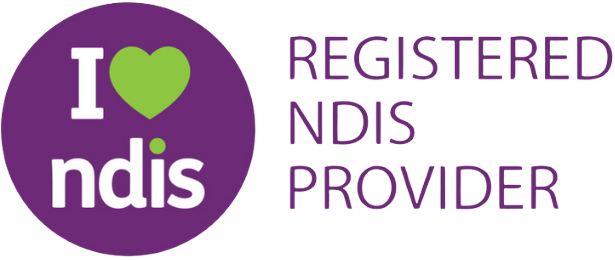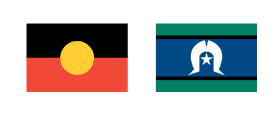The National Disability Insurance Scheme (NDIS) provides person -centered support to Australians with disabilities, enabling them to build independence and participate more actively in their communities.
Navigating an NDIS plan doesn’t have to be daunting. By breaking down the key sections and understanding the different types of funding, you can confidently manage your supports and maximize the benefits of your plan. Remember, your NDIS plan is designed to help you achieve your goals and live as independently as possible, so take the time to review it carefully and seek assistance when needed.
At Assist Lifestyle, we specialise in providing tailored NDIS Support Coordination and Psychosocial Recovery Coaching to help you navigate your plan and achieve your goals. Our Support Coordinator Marina has developed for the guide below to help you break down the key components of your NDIS plan, so you can confidently use your funding and achieve your goals.
Guide How to Read NDIS Plan
Your NDIS plan includes several important Key Sections that outline your funded supports, personal information, and goals. Let’s take a closer look at each section:
My NDIS Contact, Plan Start, and Reassessment Dates
This section provides details on how and when you will be contacted by the NDIS and the key dates for your plan. It includes your plan’s start date and the reassessment date when your plan will be reviewed. The NDIS will typically check in with you before your reassessment date to see how you’re progressing.
NDIS Funded Supports
This is one of the most important sections of your plan, as it outlines the funding you will receive for various supports. It’s divided into different categories, each designed to help with specific areas of your life. The main categories are:
- Core Supports
- Capacity Building Supports
- Capital Supports
- Recurring Supports
These categories will dictate how you can use your funding to meet your needs and achieve your goals.
Understanding the Main Components of Your NDIS Plan:
Core Supports
Core Supports provide assistance with day-to-day activities. They are generally flexible, which means you can decide how to spend the funding within this category. Supports may include:
- Assistance with Daily Life: Help with personal care, household tasks, or other daily activities that promote independence.
- Community Participation: Supports to help you engage in social, community, and recreational activities.
- Consumables: Assistance with purchasing everyday items such as continence aids, home enteral nutrition products, or low-cost assistive technology.
- Transport: Funding for transport to access services, work, or community activities.
Some Core Supports may be “stated,” meaning they must be used for specific items or services outlined in the plan. Flexible Core Supports offer greater choice in how you allocate your funding.
Capital Supports
Capital Supports are typically for high-cost items and are often specifically stated in your plan. This category includes:
- Assistive Technology: Equipment to improve your independence and safety, such as mobility aids, communication devices, or personal care equipment.
- Home and Vehicle Modifications: Changes to your home or vehicle to improve accessibility.
Unlike Core Supports, Capital Supports cannot be used flexibly—they must be spent on the specific supports listed in your plan.
Capacity Building Supports
Capacity Building Supports are designed to help you build skills and independence. These supports are often linked to achieving specific NDIS goals and may include:
- Health and Wellbeing: Programs to improve your physical health and well-being.
- Improved Relationships: Supports aimed at developing positive social interactions and relationships.
- Lifelong Learning: Assistance with education, training, or skill development to help you achieve your work and community participation goals.
- Support Coordination and/or Psychosocial recovery coaching : Help to understand and implement your NDIS plan, including connecting with service providers.
This category is “stated,” meaning you can only use the funds for the purposes listed in your plan.
Other Important Sections of Your Plan:
1. Personal Information and Goals
Your plan will include personal information and the goals you’ve set. These goals form the basis for your funding and supports. Whether it’s gaining employment, improving your health, or developing social connections, the supports in your plan are designed to help you achieve these goals.
2. Informal, Community, and Mainstream Supports
This section of your plan will outline any informal supports (such as family and friends) and community or mainstream services that play a role in helping you reach your goals. These may include health services, education, or other government-funded programs.
3. What to Do If Something Changes
Life can be unpredictable, and your NDIS plan includes a section on what to do if your circumstances change. Whether it’s a change in your health, support needs, or living situation, it’s important to inform the NDIS so that your plan can be adjusted accordingly.
Understand How Each Support Category is Managed
One of the most important aspects of your NDIS plan is understanding how each support category is managed. There are three main ways that your NDIS funding can be managed:
1. Self-Managed
If your plan is self-managed, it means that you or your nominee are responsible for managing the NDIS funds directly. This offers the most flexibility, as you can choose your own providers and make service agreements with them. With self-management, you or your nominee will be responsible for:
- Choosing your providers
- Making service agreements
- Purchasing supports and services
- Keeping records of your spending
- Informing the NDIS if your situation changes and you can no longer manage the funds
Self-management gives you greater choice, but it also requires you to handle the administrative aspects of your plan.
2. Plan-Managed
If your plan is plan-managed, a registered Plan Manager will assist you in managing your NDIS funds. The Plan Manager will pay your providers on your behalf and help ensure that your funds are used in line with your plan. This option provides flexibility without the administrative burden, as the Plan Manager handles payments and keeps records for you.
3. Agency-Managed
If your plan is agency-managed, the NDIS (through the National Disability Insurance Agency, or NDIA) will pay your providers directly. This means you must use NDIS-registered providers, but the process is fully managed by the NDIA, removing the responsibility from you or your nominee.
Using Your Plan to Buy Supports
Your NDIS funding must be spent on supports that are related to your disability and listed in your plan. It’s important to find the right providers who understand your needs and help you achieve your goals. Your funding cannot be used for items or services that are not related to your disability, such as:
- Illegal items or activities
- Day-to-day living costs like rent or groceries
- Holiday travel expenses like flights or accommodation
- Repayments for loans or mortgages
Ensure that all spending is aligned with the supports outlined in your plan, and if you’re ever unsure, consult your NDIS contact or Plan Manager.
Protecting Your NDIS Plan
Fraud against the NDIS is a crime, and it’s important to protect your plan by staying informed about how your funds are used. Here are a few tips to protect your plan:
- Regularly check the supports being provided and ensure they match your plan
- Keep records of your spending
- Only share your plan with trusted providers or individuals
- Contact your NDIS representative if you suspect any misuse of funds
If you make a mistake, the NDIS can help you correct it. Don’t hesitate to reach out for support if you’re unsure about any aspect of your plan.
Tips for Navigating Your NDIS Plan
- Take Time to Understand Each Section: Your plan is detailed, so it’s important to take the time to understand what each section means and how you can use your funding.
- Ask for Help: If you’re unsure about any part of your plan, don’t hesitate to ask your Support Coordinator, Psychosocial Recovery Coach, Plan Manager, or Local Area Coordinator (LAC) for clarification. They can help explain the details and guide you through the process.
- Keep Track of Your Spending: Some supports are flexible, but it’s important to manage your budget carefully. Work with your Plan Manager to track your spending and ensure that you’re using your funds effectively.
- Review Your Goals Regularly: Your goals may change over time. It’s a good idea to review them regularly to make sure they still align with your needs and aspirations. If your goals change, you can discuss them during your plan reassessment.
Understanding how to read and manage your NDIS plan is crucial to making the most of your supports and funding. By familiarizing yourself with the different categories of support and how your funding is managed, you can confidently use your plan to achieve your goals and live more independently.
At Assist Lifestyle, we specialise in providing tailored NDIS Support Coordination and Psychosocial Recovery Coaching to help you navigate your plan and achieve your goals. Contact us today for more information on how we can support you through your NDIS journey.




